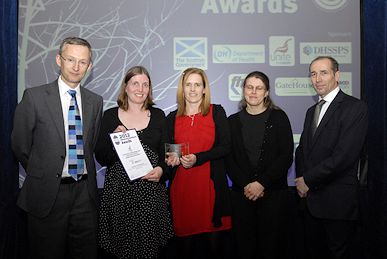Funding awarded for bladder diary project
A collaborative project between D4D, MDTi, Medipex and RTC North has been awarded funding through the Engineering and Physical Science Research Council (EPRSC).
The EPRSC funding has gone towards the trial of a bladder diary device being developed by ELAROS 24/7 Ltd (Electronic LUTS And Remote Observation Service).
The EPRSC’s Knowledge Transfer Partnership (KTP) is Europe’s leading programme helping businesses to improve their competitiveness and productivity through the better use of knowledge, technology and skills that reside within the UK Knowledge Base.
The EPSRC is building on a long-standing commitment to the KTP programme by providing funding for KTP as part of its investment in Knowledge Transfer Accounts (KTA).
Lower Urinary Tract Symptoms (LUTS) can adversely affect the quality of life of many individuals, and represent a significant economic burden for the health and social services. Currently, national guidance (NICE) recommends the use of bladder diaries to record urinary events (i.e. frequency of voids, volume of voids and episodes of urgency).
This aids accurate diagnosis and optimal management of LUTS. Despite this there is limited use of bladder diaries outside specialist services. There are two main obstacles to the use bladder diaries; the first is because of the limited experience with the use of a bladder dairy in primary care and the second relates to the difficulty in interpreting the raw information provided by a bladder diary.
ELAROS 24/7 Ltd has developed an innovative, diagnostic tool providing a computerised assessment and management service for LUTS in both men and women.
Data is collected by patients using a hand-held touch-screen electronic diary (UroDiary®) that is then downloaded to the GP clinical computer system for data visualisation, interpretation and patient management.
Once established, this should reduce inappropriate referrals and improve the diagnosis and management of LUTS with the potential to save the NHS £66M in reduction in referrals to secondary care and diagnostic costs alone. Market launch is scheduled for December 2012.
The KTP funding was received through the University of Sheffield’s Research and Innovation Department – University of Sheffield is one of the collaborative partners of D4D.





